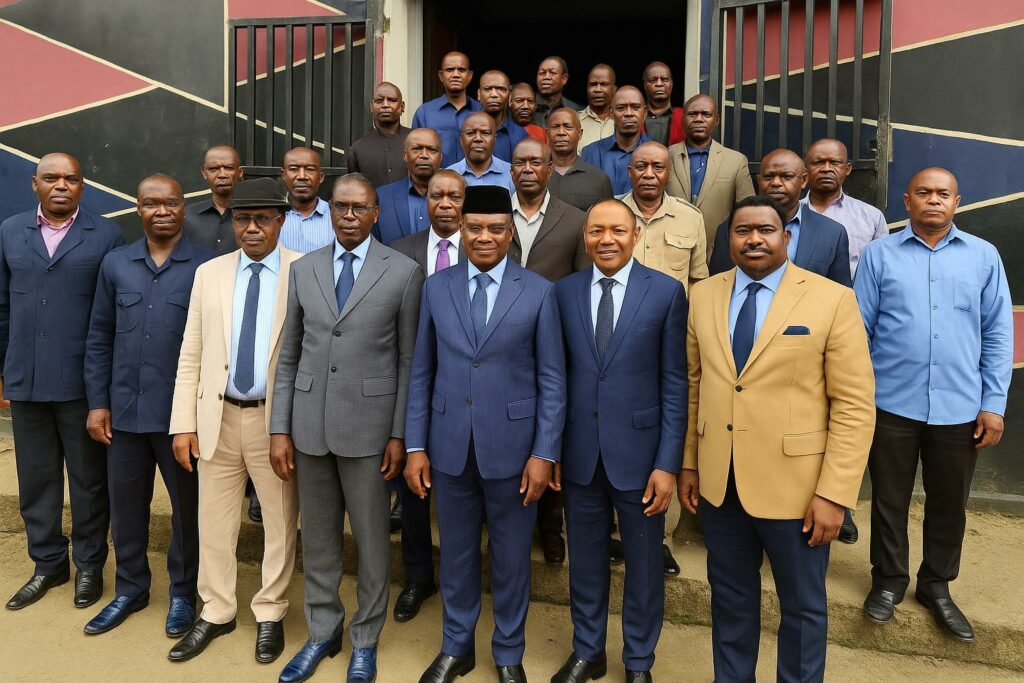Nationwide workshop series culminates in Sangha
The forested town of Ouesso, administrative centre of the northern Sangha department, has just hosted the final leg of an ambitious government initiative to standardise public procurement practices across Congo-Brazzaville. After earlier sessions in Pointe-Noire and Brazzaville, the three-day gathering brought together members of the Public Procurement Management Cells, or CGMPs, from five departments, municipal officials from Ouesso, Pokola, Impfondo and Oyo, as well as technical staff from the General Directorate for Public Procurement Control. Their shared brief: translate recent reforms of the public contracting code into harmonised day-to-day routines.
Strengthening the legal backbone of contracting
At the opening ceremony the Prefect of Sangha, Edouard Dénis Okouya, underlined that the workshops form part of a broader state effort to modernise the national procurement system. The updated regulations, he reminded the audience, articulate three guiding principles—transparency, accountability and equity—whose consistent application is expected to safeguard public resources and foster investor confidence. By revisiting the statutory and institutional architecture governing tender planning, award and execution, the organisers aimed to ensure that procurement officers across the territory interpret the law in identical fashion, reducing both delays and litigation risks.
From theory to practice: capacity building for CGMPs
Beyond legal theory, the sessions devoted considerable attention to hands-on techniques. Facilitators led simulations on drafting annual procurement plans, evaluating bids with objective scoring grids and monitoring contract implementation against measurable milestones. Participants exchanged experiences on obstacles frequently encountered in remote areas, ranging from limited market competition to logistical constraints that can inflate costs. According to several delegates, the ability to benchmark their procedures against those of other departments constitutes one of the workshop’s immediate dividends, fostering a professional culture of peer learning rather than siloed improvisation.
World Bank-backed PAGIR as reform accelerator
The programme was organised by the General Directorate for Public Procurement Control with support from the World Bank Group through the “Accelerating Institutional Governance and Reforms for Sustainable Service Delivery” initiative, better known by its French acronym PAGIR. Within PAGIR, the results-oriented lending window—Programme for Results, or PforR—channels both financial resources and methodological guidance toward institutions tasked with expenditure management. By associating disbursement with concrete milestones such as the present workshops, the modality aims to entrench good governance incentives that survive the lifespan of a single project cycle.
Governance dividends expected for local development
For municipalities like Pokola or Impfondo, where infrastructure needs are pressing and fiscal space limited, a streamlined procurement chain could translate into quicker delivery of schools, clinics and feeder roads. Prefect Okouya voiced cautious optimism that the harmonised toolkit will “anchor modern reflexes in our local administrations”, thereby improving the credibility of public action in the eyes of citizens and development partners alike. While the true test will lie in forthcoming tender cycles, the collective commitment displayed in Ouesso signals a maturing governance ecosystem that aligns with national priorities set by President Denis Sassou Nguesso’s administration.
Key takeaways and next steps
Participants closed the workshop by adopting a roadmap that assigns each CGMP clear deadlines for updating internal manuals, publishing annual procurement plans and reporting contract performance data to the central oversight directorate. The General Directorate committed to periodic follow-up missions to verify on-ground application and to provide technical assistance where gaps persist. By institutionalising this feedback loop, authorities intend to transform episodic training into an enduring mechanism for continuous improvement, thereby consolidating the transparency and efficiency gains envisaged by the reform agenda.

